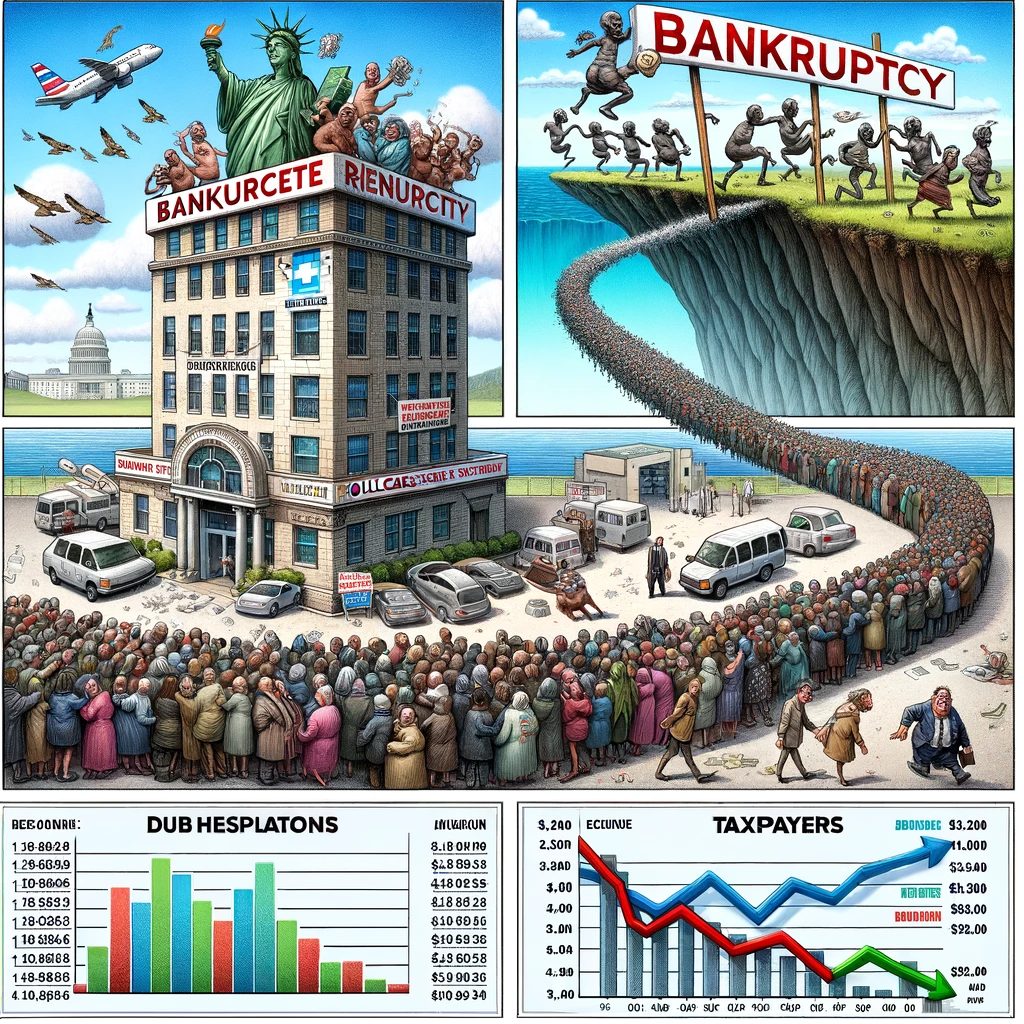U.S. Hospitals Bankrupted by Importation of Fake Refugees
Summary: A recent report from Wall Street Silver has sparked a discussion on the issue of importing fake refugees and the consequent bankruptcy of hospitals in the United States.
Yeah, let’s import more fake refugees and put all of our hospitals into bankruptcy.
— Wall Street Silver (@WallStreetSilv) January 19, 2024
User Responses:
- Natural RN: “Insurance premiums are skyrocketing, deductibles are increasing, and coverage is diminishing.”
- Martin Matthews: “When I came to America, I didn’t take any assistance. I didn’t want to take from Americans.”
- Wilson Law: “So, it’s about bankrupting the country behind the guise of illegal immigration. Is the Democratic party in power?”
- Mickamious: “Democrats…help other countries but not Americans…is that right?”
- DumbOlDad: “Hospitals are now justifying their ‘non-profit’ status.”
- Vídarr: “Americans without insurance are being thrown out on the streets.”
- Supreme Penny (Grylle): “This might all be intentional. The U.S. debt is already out of control.”
- Stefan Andersson: “One of the many false claims used to support mass immigration was that it brings great economic benefits to the host country.”
- Libero Oratio: “We should be crying for the taxpayers who come out to rescue, not the hospitals.”
- A Moose On Da Loose: “These headlines should name the elected officials behind these decisions.”
- Dave Lalande: “We’re accepting a government chosen by election software.”
- Bioticfoundry: “Meanwhile, if I get tonsillitis, I have to diagnose myself and pay $350.”
- WarConsolidator: “Imagine what this looks like on a national scale. This is going to have a big impact on everyone’s economy.”
In a calm and continuous tone, it is clear that this news from Wall Street Silver is stirring significant debate among the public. The consequences of alleged fake refugee importation and its impact on U.S. hospitals are prompting a variety of perspectives. Some express concern over rising healthcare costs and diminishing insurance coverage, while others speculate on political motives and fiscal irresponsibility. The issue also raises questions about the economic implications of immigration policies and the burden on taxpayers. These reactions reflect a blend of personal experiences, political opinions, and economic concerns, illustrating the complexity of the situation and the varied viewpoints of those affected.










